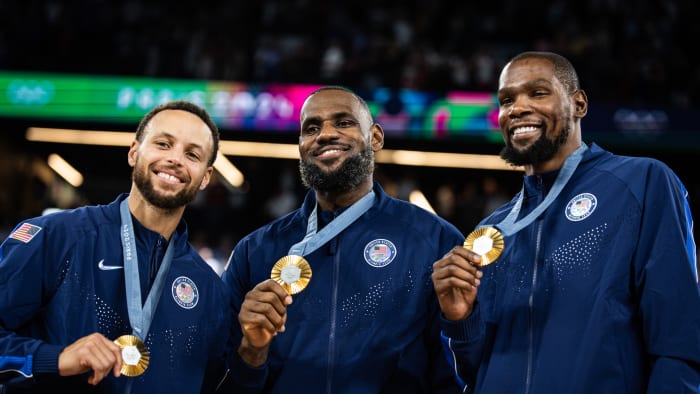The Birth of a Global Phenomenon
Basketball, invented in the United States in 1891, quickly gained popularity and made its Olympic debut as a demonstration event at the 1904 St. Louis Games. It became a medal event at the 1936 Berlin Olympics, where the United States began its reign as the most successful team in Olympic basketball history.
However, it was the 1992 Barcelona Olympics that marked a pivotal moment in this narrative. The formation of the “Dream Team,” featuring NBA legends like Michael Jordan, Charles Barkley, Larry Bird, and Magic Johnson, revolutionized the sport. This team’s impact was not just about winning gold; it was about cultural influence and global reach. Jordan’s decision to join the team, encapsulated in his famous phrase “If they’re in, I’m in,” set the stage for a global basketball revolution.
The Dream Team’s Legacy
The Dream Team’s dominance was not just about their on-court performance; it was about the charisma, marketing, and sheer force they brought to the game. They won every match by an average margin of nearly 44 points, showcasing a level of talent and teamwork that inspired generations of basketball players worldwide. This team’s influence extended beyond the court, making basketball a global phenomenon and paving the way for international players to enter the NBA.
The Evolution of Team USA
Since the Dream Team, the U.S. men’s basketball team has continued to be a powerhouse at the Olympics, winning gold medals in 1996, 2000, 2008, 2012, 2016, and 2020. However, the challenge of replicating the Dream Team’s magic has been significant. Each subsequent team has faced the daunting task of living up to the standard set by their predecessors. The current team, heading into the 2024 Paris Olympics, is no exception. With a roster that includes megastars like LeBron James, Stephen Curry, and Kevin Durant, the expectations are immense.
Modern Challenges and Strategies
The modern U.S. men’s basketball team faces different challenges than its predecessors. The global competition has narrowed the gap significantly, with top players from around the world now competing in the NBA. The current team’s average age of 34.6 years raises questions about their ability to keep up with younger, more agile opponents.
Head coach Steve Kerr’s approach emphasizes adaptability and situational tactics. The team’s depth and versatility allow for creative lineups tailored to specific game situations, ensuring a dynamic and effective gameplay strategy. The focus is on finding the right chemistry and balance among team members, rather than just relying on individual accolades.
The Pursuit of Excellence
Despite the challenges, the U.S. men’s basketball team remains committed to the pursuit of excellence. The team’s roster is a testament to the blend of experience, talent, and strategy that defines their approach. Players like Jayson Tatum, who views himself as a successor to Kobe Bryant’s competitive legacy, highlight the ongoing evolution of the team’s culture. Tatum’s reaction to being benched in favor of Durant, described by Kerr as “the ultimate pro,” underscores the team’s commitment to winning and adapting.
Conclusion
The relationship between the NBA and the Olympics is a story of dominance, evolution, and the pursuit of excellence. From the Dream Team’s groundbreaking performance to the current roster’s quest for gold, the U.S. men’s basketball team continues to be a benchmark for international basketball. As the sport continues to grow globally, the legacy of the Dream Team and the ongoing success of Team USA serve as a reminder of the power of teamwork, adaptability, and the relentless pursuit of greatness. The 2024 Paris Olympics will be another chapter in this storied history, as the U.S. men’s basketball team seeks to add another gold medal to their impressive collection.


